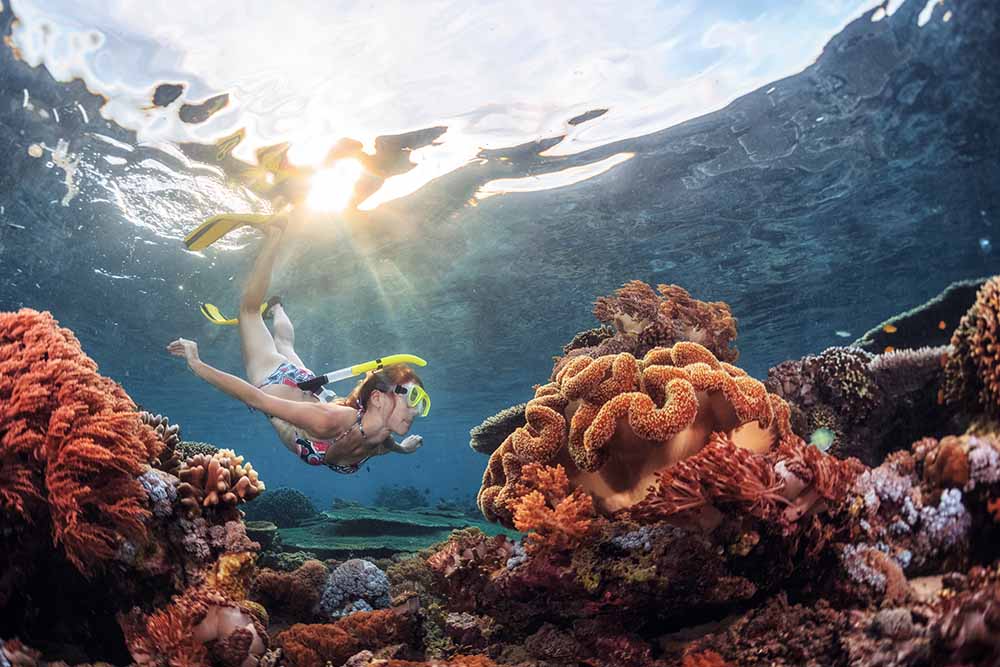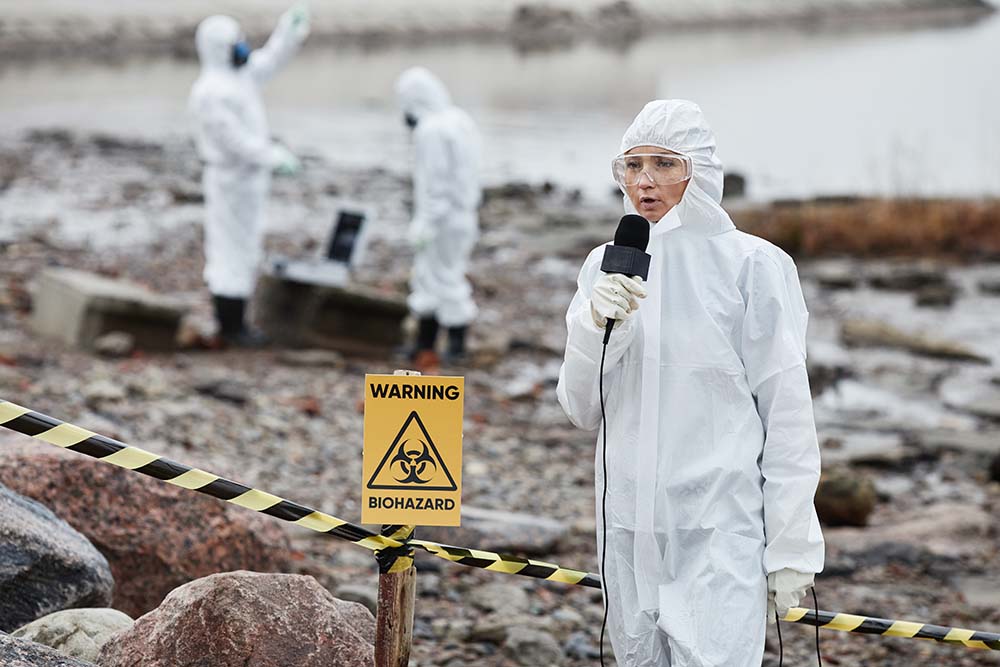No water, no life. No blue, no green. Did you know, eight million tonnes of plastic end up in the ocean every year? What’s more India ranks 12th among the top 20 countries responsible for marine pollution. Conversely, it ranks as low as the 70th country in the world for ‘Life Below Water’, the 14th Sustainable Development Goal listed by the United Nations, which focusses on marine resources. Progress shows that it is only ‘moderately improving’.
With the immediate need for the conservation and sustainable use of marine resources, the marine sector is slowly growing in leaps and bounds, with opportunities galore - especially for women. In fact, there is a smaller gender gap in ocean sciences than any other STEM stream – with female scientists accounting for 38 per cent. So, if you love science, and truly want to make a difference, this could be the right career for you.
“There are many ways to enter the marine field, depending on what you want to pursue – research, a lab job, consulting, public policy, sociologist and so on,” says Roanna Silveira, Marine Conservationist-Researcher and Co-Founder of EarlyGOOD. “The field of marine science is very broad. You don't necessarily need a degree to work in marine conservation, but I can only speak from my experience because I've always wanted to pursue research. That usually requires a PhD, although there are some talented individuals who entered the field of research only with a master's degree.”
Silveira herself has worked systematically towards meaningful qualifications that fit her passion for marine conservation and research. After a master's degree in Microbiology from Bangalore, she passed the NET exam and taught as a visiting lecturer in Goa University and Goa Polytechnic College. She also worked as a project assistant in NIO, Goa for a while. This was followed by a stint as a volunteer for a marine NGO - Coastal Impact - in Goa, where she also became a certified scuba diver. Silveira was awarded an Erasmus scholarship to an MSc in Marine Environment and Resources (MER+) from France, Spain and Belgium, which she just graduated from this September. She is currently working on getting her Dive Master.

“The requirements for a Marine Biology course are usually an HSSC in science with mathematics and biology,” she says adding, “Qualifications depend on the field that one wishes to get into and one’s interests. If you wish to be a scientific diver, you don't need a degree to work - you just need to take a scientific diver course. You can get a job as a project assistant with a BSc. So, it really depends on the future path you wish to take.”
If you decide to qualify in the Marine Sciences, the job opportunities don’t just stop with research and conservation. You can explore marine eco-tourism – being a scuba instructor or snorkelling guide. You could also work with marine animal welfare, community outreach, environmental economics, policy and advocacy, aquaculture… the list is endless. Employers could range from academia to not-for-profit establishments, from government enterprises to travel companies.
Contrary to popular belief, women with careers in ocean science and conservation aren’t a recent phenomenon. As long ago as 1845, Maria Mitchell became the first woman to work for the US Coast Survey – a NOAA predecessor. Unrelated fact – as a professor at Vassar University, she fought for equal pay for equal work, when she found that her male counterparts were being paid more than her! Closer to home, oceanographer Dr Aditi Pant became the first Indian woman in 1983 to visit Antarctica to study its oceanography.
“For me, along with the benefit of doing what I love, a career in the world of oceans also has other, more far-reaching advantages,” says Calcutta-based Malini B Chatterjee, who is training to be a dive instructor after a course in BSc Zoology. She further wishes to study abroad to pursue becoming a Hydrologist, figuring out how water on earth works and applying it to her work. “Working in the outdoors is almost therapeutic. There are the added benefits of mental health and calmness, enhanced sleep, and exercise. What I enjoy most though, is leaving behind a positive impact on people and the marine environment through my work. On the downside, it’s not like being a software engineer. You will suddenly not be able to get a high salary straight out of college. Some amount of specialized study, research, and experience are required. But it is the case of the tortoise, rather than the hare, when you’re pursuing a career in ocean conservation.”

It is interesting to note that 129 Marine Protected Areas (MPAs) in India have been recognized, but this is only a paltry 0.3 per cent of the area. Of the MPAs, a quarter lies in West Bengal, with Odisha, Andaman & Nicobar Island, Andhra Pradesh, Tamil Nadu and Gujarat not far behind. The number of MPAs needs to increase drastically though, to have a positive impact on animal biodiversity. Coastal ecosystems are one of the most fragile, deeply affected by climate change and human activities.
Says Silveira, “To succeed in the field, you need to be focused on your future goals. It may involve getting out of your comfort zone, such as moving to a new place. Marine conservation may not always pay well and you may need to take on internships to get knowledge and experience. Increasing your skill set helps - for example data analysis or scuba diving.”
Madeline St Clare, Founder and Managing Director of Women in Ocean Science (a non-profit that tackles gendered issues in marine science and conservation) says, "Women need a bigger seat at the table. We're squandering one of the most powerful tools we have for ecosystem resilience by keeping female voices from the ocean conversation.”